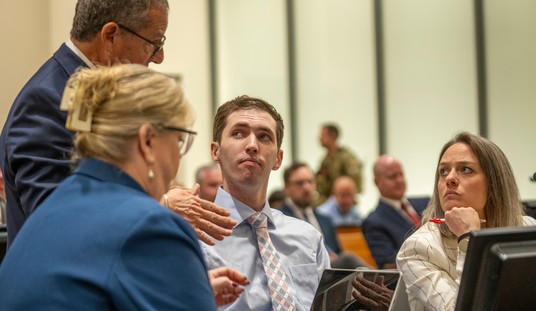This morning’s Gospel reading is 10:17–30:
As Jesus was setting out on a journey, a man ran up, knelt down before him, and asked him, “Good teacher, what must I do to inherit eternal life?” Jesus answered him, “Why do you call me good? No one is good but God alone. You know the commandments:
You shall not kill;
you shall not commit adultery;
you shall not steal;
you shall not bear false witness;
you shall not defraud;
honor your father and your mother.”
He replied and said to him, “Teacher, all of these I have observed from my youth.” Jesus, looking at him, loved him and said to him, “You are lacking in one thing. Go, sell what you have, and give to the poor and you will have treasure in heaven; then come, follow me.” At that statement his face fell, and he went away sad, for he had many possessions.Jesus looked around and said to his disciples, “How hard it is for those who have wealth to enter the kingdom of God!” The disciples were amazed at his words. So Jesus again said to them in reply, “Children, how hard it is to enter the kingdom of God! It is easier for a camel to pass through the eye of a needle than for one who is rich to enter the kingdom of God.” They were exceedingly astonished and said among themselves, “Then who can be saved?” Jesus looked at them and said, “For human beings it is impossible, but not for God. All things are possible for God.” Peter began to say to him, “We have given up everything and followed you.” Jesus said, “Amen, I say to you, there is no one who has given up house or brothers or sisters or mother or father or children or lands for my sake and for the sake of the gospel who will not receive a hundred times more now in this present age: houses and brothers and sisters and mothers and children and lands, with persecutions, and eternal life in the age to come.”
Anyone who ever played sports has heard this reflection’s headline at least once from a coach: It’s all in the follow through. Whether you’re throwing a ball, swinging a bat, serving on a tennis court, or teeing off on a five-par, success comes from consistently going through the entire motion. If you give up too soon on your motion, even at the point of making contact or release, you will fail. Your performance becomes erratic, you end up making big mistakes, and you find that the bench begins to start forming itself to your backside.
Of course, some of us spent plenty of time on the bench anyway, but that’s a story for another reflection.
Today’s Gospel shows us that principle in something more important than bowling or table tennis. The story of the wealthy young man is one of the more tragic in the Gospels, not because of any horror but because it reminds us that knowing Jesus is not the same as believing in or trusting Jesus. The tragedy of this missed opportunity even hits Jesus.
After all, the young man’s approach to Jesus in the first place qualifies as a remarkable event. Jesus came on behalf of the poor, a point He makes repeatedly in his ministry. In almost every reference about the wealthy contained within the Gospels, Jesus scolds them for hoarding resources that are meant to be shared in caritas, and for hypocrisy on the law rather than true compliance with it.
In this instance, however, the wealthy young man embraces the law and recognizes Jesus as a “good teacher,” a point which catches even Jesus off-guard. He sees the love behind the commandments and has kept them in his heart. The young man recognizes all of this, which even impresses the disciples and Jesus Himself, who “loved him” when the young man revealed his heart.
He kept the Law; he loved the Lord; and he recognized Jesus’ authority. The young man seems to have made it all the way to salvation, and all he needed to do was put his trust in Jesus for his salvation. And that’s precisely where the young man fumbled the ball — or dropped the racquet, or slipped on the grass, depending on your preferred sports analogy. He didn’t follow through.
This tells us that simply knowing Jesus or complying with the law will not be enough. Both have to be in our hearts as faith as well as intellect. Salvation does not come through a check list or like points in a game, where the achievement of a certain number means a win. We are not called upon to simply regurgitate, but to believe and trust. That is the essence of faith, and that trust requires us to put Christ above all else, even the material wealth that can uplift in the moment but too often becomes a prison.
That lesson appears to have shocked even the disciples, who openly fretted over what it could mean. If one kept the law and recognized Jesus’ authority and it wasn’t enough, then how could anyone possibly be saved? “For human beings it is impossible” to be saved, Jesus replied, “but not for God. All things are possible for God.”
This teaching is both comforting and a warning. It underscores the necessity of trust, especially for those of us who might not be so good at keeping the commandments as the wealthy young man in this story. Salvation is a gift through God’s grace and Christ’s sacrifice. We cannot achieve it on our own, and we cannot achieve it at all without recognizing that reality. We have to trust in the Lord and put Him first in all things to connect to that grace.
We have to follow through.
To do that requires the wisdom to discern the stakes. Our first reading today from Wisdom essentially recaps the choice Solomon made (1 Kings 3) when offered any form of blessing by the Lord. In choosing wisdom, Solomon really chose to be guided by the Lord and valued that more than wealth, fame, or power. It is the antithesis of the choice made by the already-wealthy young man in this Gospel, providing a counterpoint to its lesson.
That brings us to one final point about the young man. He made the same mistake as the Pharisees and scribes did in Jesus’ time, albeit with much more charity and humility in his heart. The wealthy young man confused the Law with God Himself, and failed to recognize that the Law serves us as a formation for salvation and is not an end in itself. The young man followed the law and so was formed enough to recognize Jesus’ goodness, a point that largely escaped the Pharisees who were more concerned with temporal power rather than salvation. But just as the Pharisees did, the young man mistook the Law and made it into an idol rather than truly allow himself to be formed by it. He just failed to take that final step into trust, love, and faith. He botched the follow-through.
Will we make the same mistake?
“Sunday Reflection” is a regular feature, looking at the specific readings used in today’s Mass in Catholic parishes around the world. The reflection represents only my own point of view, intended to help prepare myself for the Lord’s day and perhaps spark a meaningful discussion. Previous Sunday Reflections from the main page can be found here.








Join the conversation as a VIP Member